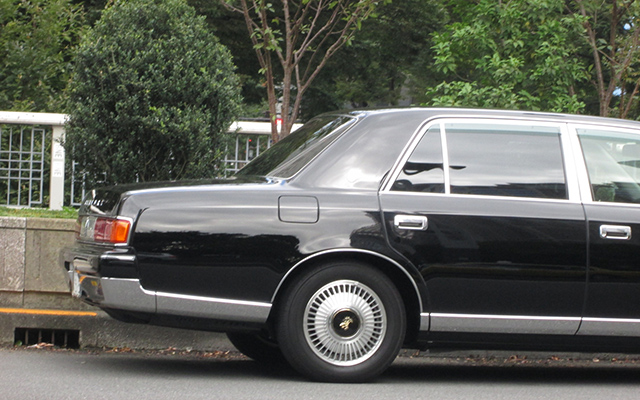
Japan Business Law: Configuring Executive Compensation Pay
In addition to running the company, managers can receive executive compensation from the company.
But as an executive, is it okay to set a high salary simply because you are in a position to make such a decision?
For small-to-medium enterprises, setting an appropriate amount can create a significant tax shield.
This article will introduce methods for determining executive compensation to increase your tax shield.
Corporate Income Tax Fluctuates Depending on the Executive Compensation Amount
When running a company, you will be responsible for paying corporate taxes, income tax (as an individual receiving executive compensation), resident taxes, and social insurance premiums.
Consequently, reducing these taxes involves keeping cash on hand.
Creating a tax shield first requires reducing the company’s corporate tax rate and one’s personal income tax rate.
For small-to-mediums-sized enterprises, the corporate tax rate (effective rate of duty) fluctuates depending on company income (profit). The corporate tax rate for a company with 4 million yen of annual profit is 21.4%. For companies exceeding 8 million yen in annual profit, the corporate tax rate is 33.8%.
In other words, as profits decrease, so does the corporate tax rate.
Likewise, the personal income tax rate is the same. It fluctuates depending on income.
The income tax rate for incomes under 1.95 million yen is 5%. For incomes between 1.95 and 3.3 million yen, the income tax rate is 10%, and so on.
Among management, executive compensation is high. Some executives may be receiving more than 40 million yen.
At this income level, the tax rate reaches 45%.
Note that residents’ tax is set at 10% regardless of income, so the maximum possible tax rate (depending on income) may total up to 55%.
As such, it is best to try to keep one’s personal income as low as possible.
However, by reducing personal executive compensation, corporate profits will in turn increase and may raise the corporate tax rate.
On the other hand, if the corporate tax rate is lowered by deducting executive compensation, one’s personal income tax rate will subsequently increase.
And if both the corporate tax and one’s individual tax are exceedingly high, there will not be much cash on hand.
You must consider how to balance corporate income and personal income in order to create the optimal tax shield.
To do this, you must first decide on the appropriate executive compensation.
How to Decide Executive Compensation for an Effective Tax Shield
What amount of executive compensation will result in the biggest tax shield?
While the amount varies depending on family structure, age, and size of the business, the following example is based on an individual of 40 years old who manages a company with 50 million yen in capital.
Let’s examine the differences in tax rate for a company with annual profits of 20 million yen (excluding executive compensation), with the company providing annual executive compensation of 10 million yen and 15 million yen respectively.
Both amounts presume that there is no income outside of the executive compensation, and that only basic tax deductions were made.
Compensation of 10 Million Yen/Year (Company Profit: 10 Million Yen)
Personal income and residents’ tax is approximately 1.84 million yen (*1), with company corporate tax coming to approximately 3.38 million yen.
The total sum of income tax and corporate tax comes to 5.22 million yen.
Compensation of 15 Million Yen/Year (Company Profit: 5 Million Yen)
Personal income and residents’ tax is approximately 3.86 million yen (*1), with company corporate tax coming to approximately 1.16 million yen.
The total sum of income tax and corporate tax comes to 5.02 million yen.
*1
Executive Compensation Income Tax Deduction Basic Deduction
((10 Million Yen – 2.2 Million Yen – 380,000 Yen) x 23% – 636,000 Yen) x 102.1% + (10 Million Yen – 2.2 Million Yen – 330,000 Yen) x 10% = 1.84 Million Yen
*2
((15 Million Yen – 2.2 Million Yen – 380,000 Yen) x 33% – 1.536 Million Yen) x 102.1% + (15 Million Yen – 2.2 Million Yen – 330,000 Yen) x 10% = 1.84 Million Yen = 3.863 Million Yen
In this case, setting executive pay at 15 million yen is better than 10 million. Taking into account the company and individual, it results in approximately 200,000 yen cash on hand.
As you can see, simply setting executive compensation to a low figure is not necessarily beneficial.
There’s Also A Way to Keep Money in the Company by Preparing for Minor Losses
Naturally, deciding executive compensation is part of a company’s management policies.
Keeping capital within the company strengthens the company’s financial standing and can lead to profitable transactions within the company.
Furthermore, keeping significant capital within the company can also help with capital investments.
Many prefer keeping money within the company rather than with the individual, even if it means paying more corporate taxes.
Executive compensation is set at a base figure. If this figure is disproportionately high, a portion of the figure cannot be calculated as a loss.
The base figure for compensation varies depending on the work responsibilities of the executive, the size of the company, and average compensation in the industry.
Accordingly, the acceptable amount of executive compensation will correspond to the conditions in the company. It is crucial to determine what the acceptable figure should be.
Do your best to set an optimal executive compensation amount for your company.
